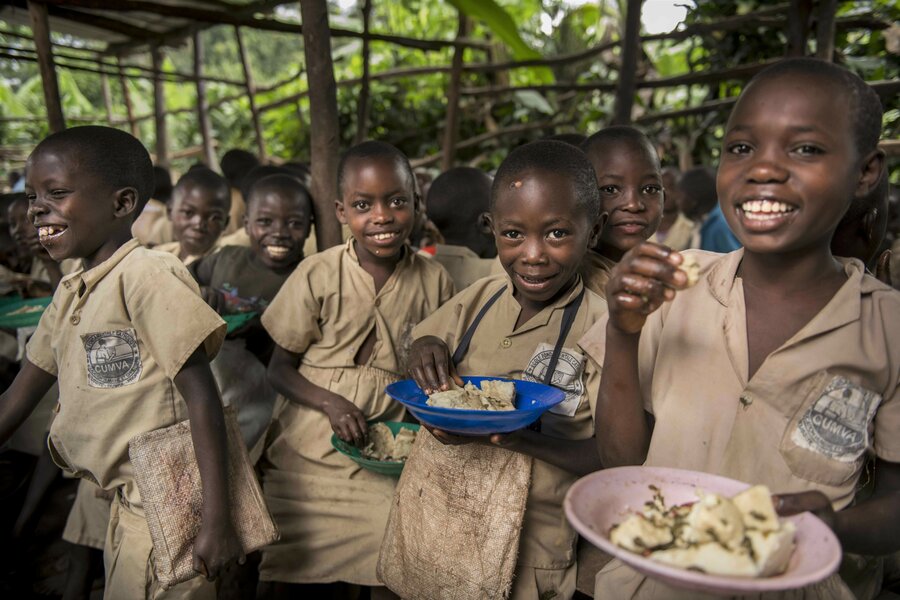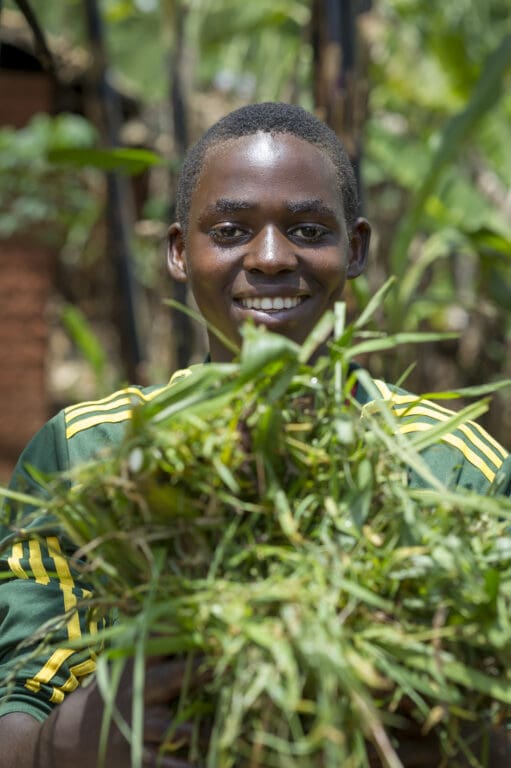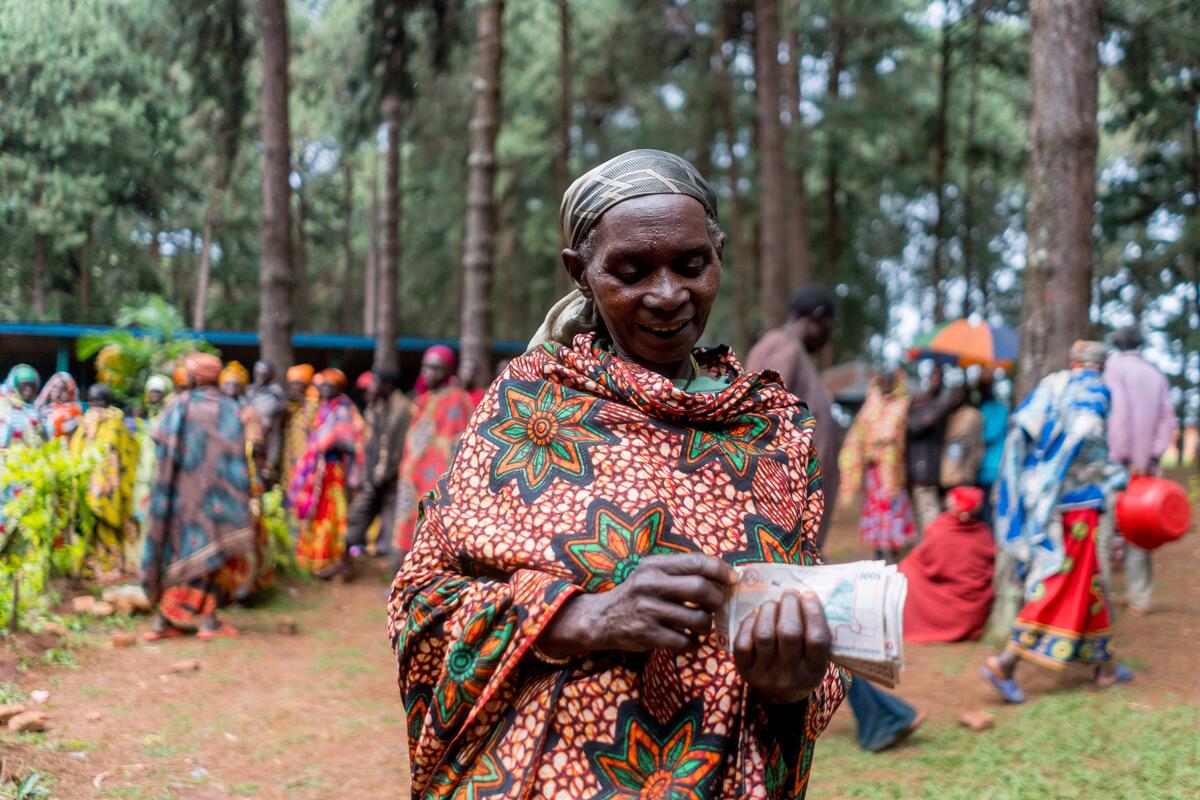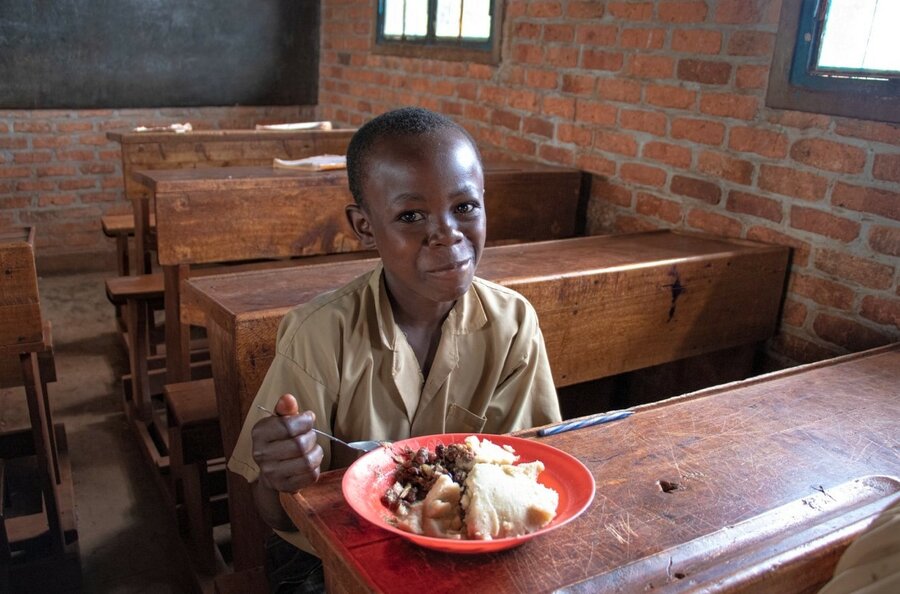
BURUNDI:
Landlocked and Hungry
Burundi is one of the poorest countries in the world. Over 1 million of its people are facing crisis levels of hunger today. But WFP is there and we’re shoring up resilience.
Burundi’s alarming levels of hunger are driven by poverty, climate shocks, soaring inflation and fuel shortages. Now, six months of heavy rain, flooding and landslides have displaced thousands of people and damaged 10% of Burundi’s farmland. In a country where 85% of people depend on farming for their survival, this flooding could drive more families into a hunger crisis.
of children under 5 are stunted
food-insecure refugees and asylum seekers live in the country
people are on the brink of starvation

RURAL & CLIMATE SHOCKED
Relentless heavy rain from September 2023 to March 2024 led to flooding and landslides, which affected over 300,000 people – including 47,000 who have been displaced from their homes. This flooding is only the latest climate shock in a series of disasters to batter Burundi including drought and hailstorms. These weather extremes have led to displacement, destroyed homes and increased food insecurity.
Adding to the pressure on Burundi’s stretched resources are 85,000 refugees, mainly from the Democratic Republic of the Congo, who are hosted in already food-insecure areas and rely on food assistance.
Only 32% of Burundi’s children complete their lower secondary education. Although women play a central role in the development of the country, gender equality is among the lowest in the world.
But peaceful general elections in May 2020 and subsequent political developments helped the international community recognize Burundi as a country with a huge potential for development.
WFP’S Work in BURUNDI
Working in conjunction with United Nations partners, we support the government of Burundi by addressing the root causes of hunger and malnutrition and boosting communities’ resilience through school meals, agricultural support and food fortification.

Ahead of the flooding that recently hit Burundi, WFP provided preemptive cash transfers to 21,750 people. This cash allowed them to prepare their homes and livelihoods to mitigate the impact of the floods. In addition, WFP is supporting 42,000 flood-affected people with cash-transfers for a three-month period to help families recover from the disaster and restore their food security.


We’re working with the government and small-scale farmers to increase the quantity and quality of food production. How? We purchase food from them for our homegrown school meals program. And we’re working on the value chain production of nutritious flour and milk across the country. In 2023, WFP supported 24,000 farmers across the corn, milk, beans and rice value chains.


WFP supports 700,000 children in Burundi’s most food-insecure regions with school meals. A 2023 study showed that WFP-supported schools in Burundi had a 5.1% higher graduation rate and a 3.6% lower dropout rate. Last year, 43% of all the food procured by WFP for its school meals program was purchased locally, injecting over $3.6 million into the local economy.

Help Save Lives by Sending Food
You can help deliver food to vulnerable populations in Burundi and other countries by donating to WFP.
What’s happening in BURUNDI?
Read the latest news updates and stories from Burundi:


